PEWL Year in Review
July 2022-June 2023

Office of Professional Education and Workplace Learning (PEWL)

July 2022-June 2023

Office of Professional Education and Workplace Learning (PEWL)

Amy Perez
Executive Director, Professional Education and Workplace Learning
Lisa R. Braverman, Ph.D. Dean, CUNY School of Professional Studies
Marisa Osorio Editor/Writer
Jennifer Chand
Director of Monitoring, Evaluation, and Learning
Rebecca Brown Cesarani, Tanja Carter-Searls, Dawn Picken Senior Program Directors
Violet Macdonald
Writer
Marissa Armanios, Alan Rubenstein, Ariana Souzis
Copy Editors
Chuck DeLaney, Luis Yañez, Hideki Aono
Photography
Dorothy Robinson
Graphic Designer
Kelly Cunningham
Senior Graphic Designer
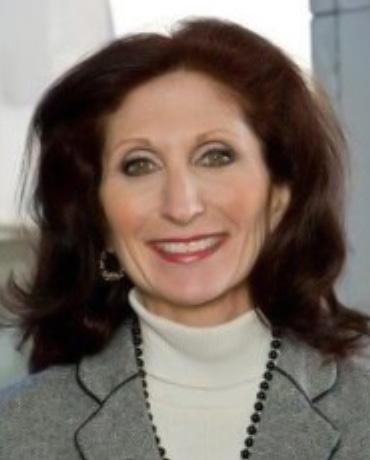
As the new dean of the CUNY School of Professional Studies, I am thrilled to join this dynamic community of faculty, administrators, and students.
A national innovator with over 25 years of experience in adult, online, and continuing higher education, I am excited to lead CUNY SPS and PEWL to their next chapter of impact and growth. Most recently, I served as the assistant vice president of workforce credentialing and community impact at Mercy University (formerly Mercy College), where I helped pioneer programs for adult and online learners. I am eager to continue—and expand—my efforts here at CUNY SPS to better serve our incredibly hardworking and ambitious adult learners who often face tremendous challenges in returning to college or advancing to a graduate degree.
As I begin my tenure, I am pleased to join a School that has, from the beginning, thrived. Since we launched our first degree in 2006, we’ve been growing—in terms of programs, students, and impact.
PEWL, created at the same time as the School, is one of the most extraordinary units within CUNY. It not only partners with agencies and organizations to develop learning solutions, but also provides employees with professional development through a variety of innovative programs.
Partnering with PEWL is always a win for any organization.
I invite you to read this report and discover why.
 Lisa R. Braverman, Ph.D. Dean, CUNY School of Professional Studies
Lisa R. Braverman, Ph.D. Dean, CUNY School of Professional Studies
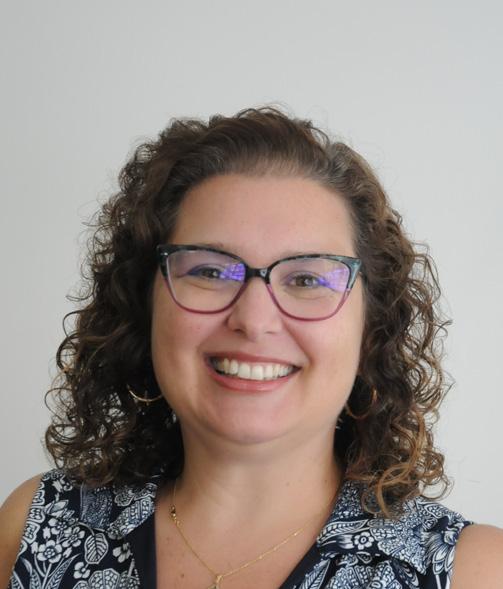
It’s been another phenomenal year at PEWL!
This exceptional unit within the CUNY-verse began its work in 2006. It is comprised of more than 200 dedicated professionals who collaborate with and support city, state, and non-profit agencies to help them achieve their goals and ultimately improve the lives of New Yorkers.
How do we do that?
PEWL begins by assessing organizational needs to understand their work, challenges, initiatives, and goals to drive the development of learning solutions.
Our areas of expertise include designing, implementing, and scaling up learning programs tailored to meet our stakeholders’ needs; building learning management systems and supportive technology; offering robust program evaluation; providing expert project management; and creating and supporting asynchronous, in-person and virtual instructor-led training platforms.
Moreover, the keys to PEWL’s success are commitment to customer service, centering client collaboration, and fruitful thought partnerships resulting in meaningful relationships, some of which are in their 14th year.
Highlights of what we accomplished for our partners in FY23 include:
• The Managing for Innovation Program, aimed at NYC nonprofit emerging leaders, finally returned to in-person delivery after three years of virtual classes, enhancing engagement and interactivity among participants.
• The Energy Management Institute (EMI) offered a host of classes with the goal of making city buildings run more efficiently. Classes were held at CUNY SPS and throughout the city.
• ACS Workforce Institute (ACS WI) partnered with the Department of Homeless Services to deliver a training to nearly 400 DHS staff members on the role of mandated reporters.
• ACS WI delivered and expanded training city-wide to 49 Division of Child Protection units in the Collaborative Assessment, Response, Engagement & Support (CARES) Approach.
• The Academy for Community Behavioral Health continued to increase their city-wide free course offerings with a new Trauma-Informed Organizational Practice certificate program, developed through a robust co-design process.
• And in the technology arena, the Office of Child Support Services CUNY Training Program supported the roll-out of the Electronic Case File system and began training OCSS staff on how to use it.
This past fiscal year, we received more than $34 million in funding for our programs and over 37,000 people have taken at least one course offered by PEWL.
I’d like to thank former Interim Dean Jorge Silva-Puras for his leadership and advocacy in FY23, as well as welcome our new CUNY SPS Dean Dr. Lisa Braverman, who will guide us to greater heights.
Please enjoy our fourth report highlighting the unit’s extraordinary work. We welcome you into the world of PEWL!
 Amy Perez Executive Director, Office of Professional Education and Workplace Learning
Amy Perez Executive Director, Office of Professional Education and Workplace Learning


Total Budget
$34.7 M
Individual Learners Served
37,786
Individual Learners Served Since PEWL’s Inception in 2006
~300,000+
Number of PEWL Programs
15
Course Enrollment
122,967
Participants from the Managing for Innovation Program Managers’ Forum were celebrated with a special certificate ceremony for completing their intensive, seven-session course held over 14 weeks, and being the first group that gathered in person since 2019.
Managing for Innovation (MFI) is a leadership program offered in partnership with PEWL and the Mayor’s Office for Economic Opportunity (NYC Opportunity), consisting of the Program Managers’ Forum, the City Partners’ Workshop, and an alumni network.
MFI is one of three partnerships PEWL has with NYC Opportunity. The others are The Academy for Community Behavioral Health, and the e-learning course, Unlocking Employment: How to Partner with Job Seekers Impacted by the Legal System.
The Program Managers’ Forum is offered to selected program directors, assistant directors, and other emerging leaders at NYC nonprofits who manage or work on programs funded by NYC Opportunity, the Young Men’s Initiative, or other New York City agencies.
The curriculum is based on the Program Management Core Competency Model, created by PEWL and NYC Opportunity, which outlines fundamental competencies for successful program management.
The City Partners’ Workshop is aimed at city agency and Mayor’s Office staff who help to oversee the design, implementation, and monitoring of cityfunded human services programming and systems change initiatives.
PEWL Program Director Clarke Griffith, who co-facilitated the module on strategy and planning, noted that the MFI graduation celebration was particularly joyous.
“I’m thrilled we were able to hold this in-person,” Griffith said. “It makes such a difference. This outstanding group was able to bond, interact, and collaborate in a variety of ways, and it made for a much richer experience.”
Jaye Smith, MFI lead facilitator, agreed.
“It is a joy to be able to support this group of dedicated professionals helping to support the people of this city, especially those who need it most,” Smith said. “Being back together in person made a world of difference.”
In addition to strategy and planning, other course topics covered during the program include: analysis and decision making; leading people and building teams; personal management; collaboration and partnerships; and contract management and budgeting.
After completing the Program Managers’ Forum, participants become part of an alumni network, which includes ongoing professional development opportunities.
Sara Feit, director of CASES ATI Intake Assessment Team, said that what drew
her to the program was the chance to collaborate with other managers and develop stronger management skills.
“When you become a manager, you’re just thrown in, and you kind of have to figure it out,” she said. “What I loved the most about the program was the collaboration and hearing people who are in similar types of settings brainstorm about solutions to problems. Everyone can feed off of each other and it’s very solution focused. We’re looking at it from different points of view.
‘Have you tried this? Well, how about this? Why don’t you ask that as opposed to this?’ ”
Susanna Saul, director of immigration at Her Justice, said the course continues to be instrumental and clarifying. “I see things now that I didn’t see before,” she said. “I have much more of a confident voice when I speak up. I have a very clear idea about what questions I should be asking.”
Saul added with a laugh that everybody she works with is sick of hearing her say ‘in my management course….’ “The people I have supervised have said, ‘This is great that you did this, I can see a difference in your leadership.’ ”
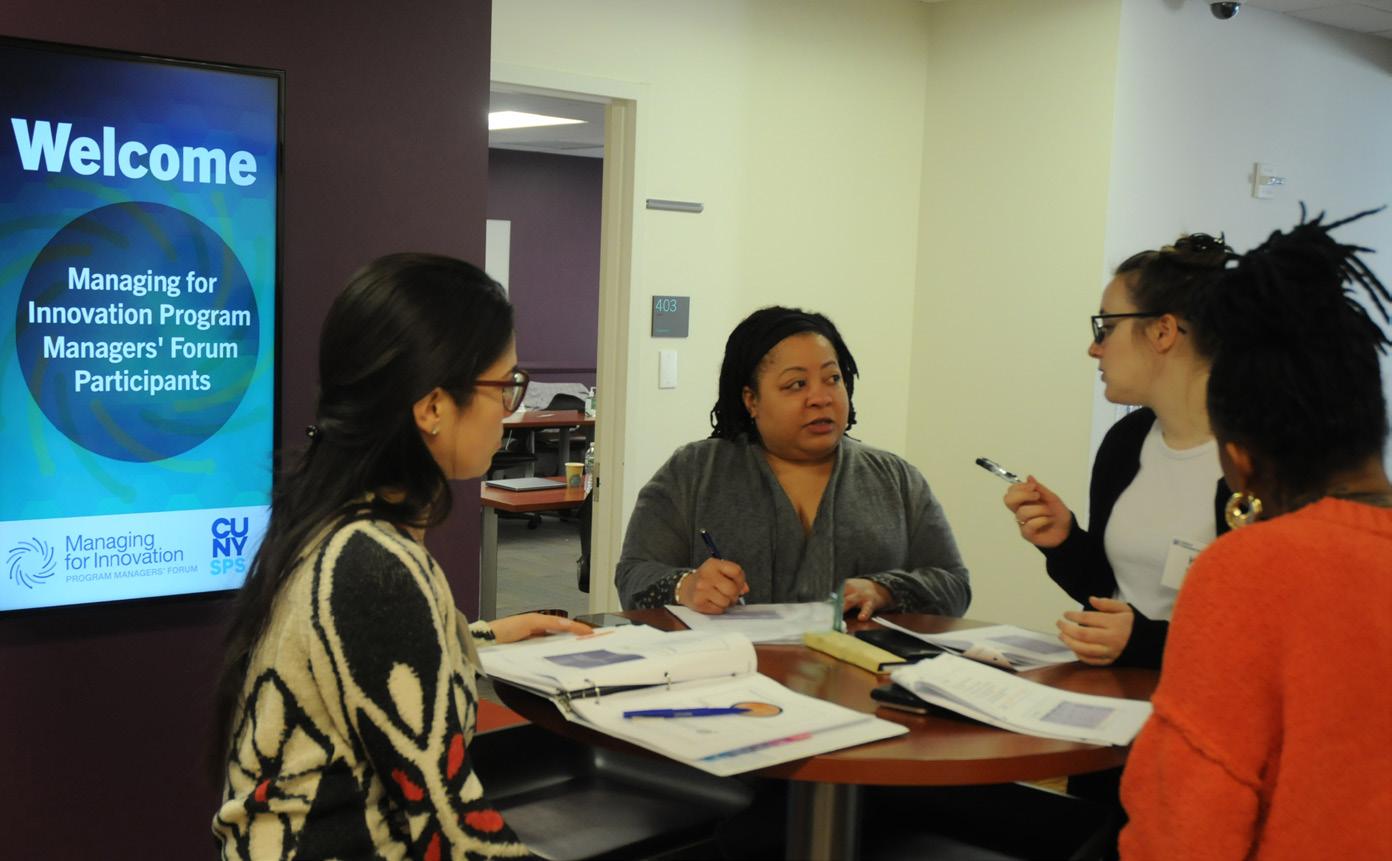
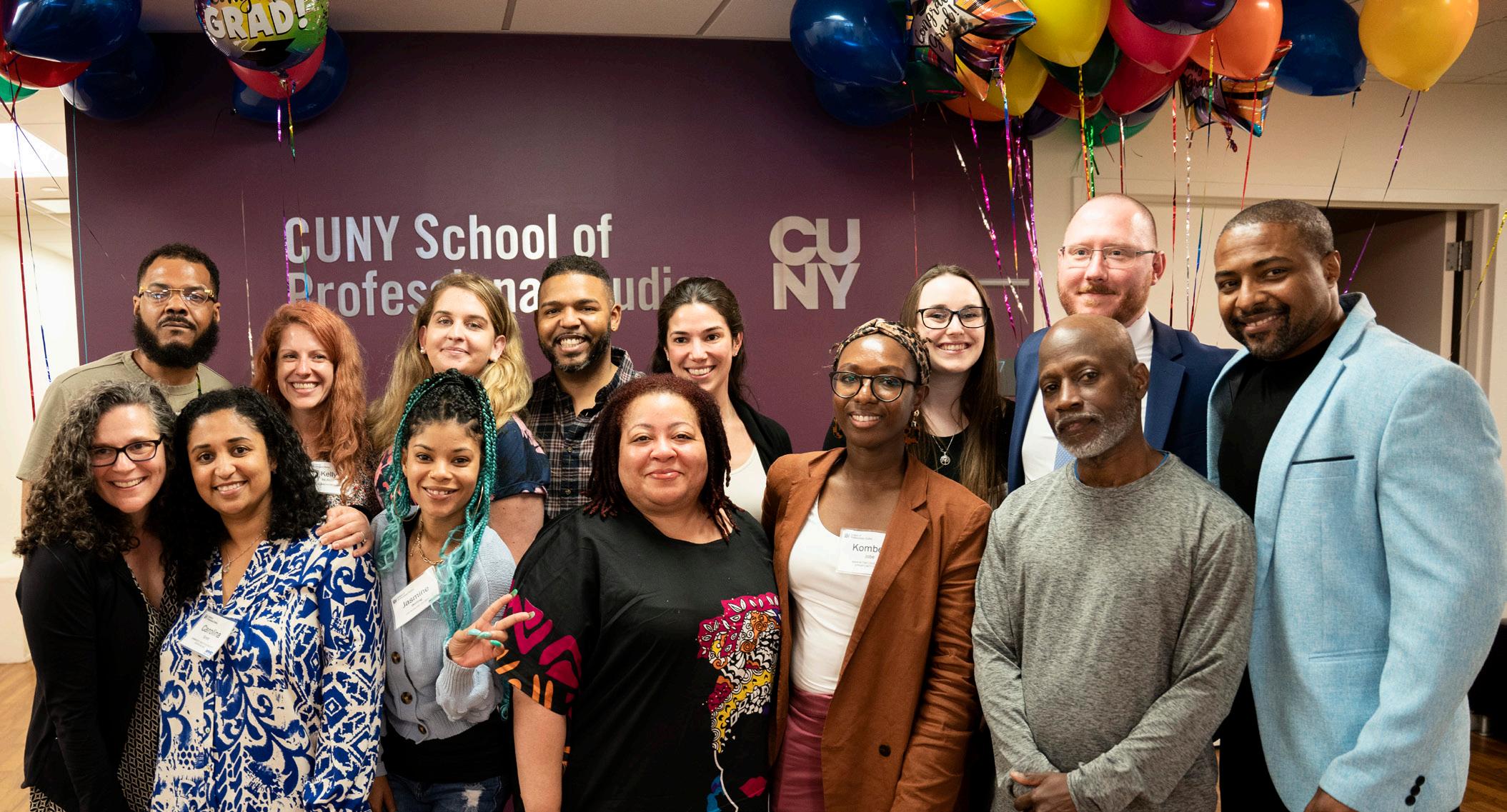
Natasha Edwards, assistant director of East Harlem Jobs Plus with Urban Upbound, said she learned so much as the course progressed. “I can’t even pinpoint one thing because every time we came to a new section, there was something that I needed to know,” she said. “I also got the bigger picture for everything. I’m new as an assistant director. It really helped me with the foundation. It was a great opportunity for me to get all that information.”
Jasmine Bolling, program manager for 100 Suits for 100 Men, finds herself still carrying around the large white binder of MFI course information and lessons. “I find myself referring to what we learned in that binder very often,” she said. “It has a lot of useful information. The program was phenomenal.”
“This outstanding group was able to bond, interact, and collaborate in a variety of ways, and it made for a much richer experience.”
Twelve urban park professionals traveled from across the United States and as far as Manila, Philippines, to gather for five days in April at the Central Park Conservancy (CPC) office as part of the Urban Park Leadership Program (UPLP).
Joining PEWL program directors and CPC staff, It was the first time this in-person portion of the program had been available since the pandemic began in March 2020. The group included participants from Florida, Louisiana, Michigan, Oklahoma, Texas, Washington, and New York.
“It was a wonderful experience for the UPLP participants to be able to gather and meet each other in person and for us to meet them after interacting over Zoom since October,” said PEWL Program Director Clarke Griffith. “They are an amazing group of diverse individuals who had the opportunity to learn not only during the workshops, panels, and field trips to Central Park, but also from each other.”
The UPLP brings together senior-level urban park professionals for a nine-month, blended experience of learning, network building, and creative problem-solving. Designed, facilitated, and hosted by the Central Park Conservancy Institute for Urban Parks, in partnership with PEWL since 2017, the program comprises a
combination of web-based, professional development experiences and in-person learning covering a range of topics relevant to urban park leadership and management.
Participants engage in a series of online workshops, seminars, self-paced modules, and coaching sessions over the course of nine months, culminating in a week-long session in New York City, and then present a capstone project in May.
The week-long session was comprised of a variety of Central Park tours including a poignant highlight at the Gate of the Exonerated, with John Reddick, CPC director of community engagement projects.
On an unseasonably brisk day, Reddick explained how the gate came to fruition. Located on 110th Street between Malcolm X Boulevard and Fifth Avenue (near the neighborhood where the Exonerated Five, formerly known as the Central Park Five, once lived), the Gate of the Exonerated reflects the ideal that inspired the Park’s entrance names in the 1860s acknowledging people in the city, their work, and their stories.
Other workshops included Diversity, Equity, and Inclusion, Leadership Through Storytelling, Communications and Behavioral Psychology, and panels on public private partnerships (with Central Park Conservancy President and CEO Betsy Smith, Jesse


“The in-person session was such a valuable opportunity for program participants to not only interact and network, but to also reflect on their work and the future of their parks,” PEWL Program Director Jennifer DePalma said. “Each participant was encouraged to write a letter to their future self at the beginning of the week about what the program has meant to them and how they want to carry their learning forward, then at the end of the week, they opened their letters and reflected on challenges they experienced, lessons learned, and what made them proud.”
Stephanie Kiouses, park director of the Levy Park Conservancy in Houston, Texas, said what she’s loved most about the retreat is learning from her colleagues.
“So much has been sparked through the in-person contact,” Kiouses said. “The great conversations we have as we’re walking through the tours and around the city, talking about the challenges we all face, and how we’re tackling them. We talk about the larger philosophical questions: How should we run parks? But also, the smaller issues. What type of wood are you using? Are you having issues with dog pee? The nuts and bolts of the day-today in running parks, having those conversations as well, is just hugely valuable.”
Juliana Fulton, Detroit deputy chief parks planner, said she started her current job eight years ago as the city was emerging from bankruptcy. The capital budget for parks was zero, but she said it grew and the parks are getting to a great place. “Hearing what other folks are doing, and lessons learned, helps us to kind of leapfrog some of those challenges and problems,” she said. “Or figuring out what the challenges might be and problem-solving and brainstorming together. I feel like it’s just been so inspiring.”
PEWL debuted a revamped and optimized version of the Financial Independence Now (FIN) Learning and Coaching program, which was piloted and introduced to lowbarrier and adult services shelters.
FIN is a partnership between the NYC Department of Homeless Services (DHS) and Change Machine.
PEWL Program Director Jennifer DePalma said that what began as a live, in-person training and then moved to virtual learning on Zoom, with access to e-learning modules and coaching tools online, has been enhanced further and converted into a primarily asynchronous training that includes a one-hour, live kick-off session for the participants.
During the live session, learners receive a course overview of the learning objectives and the self-paced modules. “I’m excited about this new optimized version of FIN,” DePalma said. “DHS really wanted to enhance the online learning experience for those taking the course and I think it was well-received.” She added that office hours were included as part of the optimized program to assist learners with the content. Technical-related support for navigating and using the online learning platform is also available.
In January 2018, this partnership was formed with the goal of equipping DHS agency and shelter staff, including DHS contracted provider-partner staff at shelter sites, with the tools to lead conversations with clients about personal finances. This included the assessment of credit scores and reports, developing spending and savings plans, managing credit and debt, and finding no cost or low-cost banking services.
Since the training launched in September 2018, nearly 800 shelter and agency staff have been trained across approximately 157 shelters and low-barrier programs serving a range of clients, including single adults, adult families, and families with children. The program aims to reach all of the agency’s shelters across the five boroughs.
Beatriz Fritschler, DSS deputy commissioner for strategic partnerships, was one of several people who recently tested the piloted program.
“I loved the focus on coaching,” she said. “The focus of the coaching model is empowerment. I like the handouts and how they provide tools that shelter staff can use with the individual clients. I also like that they dismantled some beliefs about documentation and credit, especially because that may be a huge challenge for our shelter clients.”
Fritschler added that the city has a lot of shelter residents that may have different kinds of immigration documentation status, and that many shelter clients don’t have any credit history, or a negative credit history. “You don’t want to create the belief that there’s no way that they can overcome this,” she said. “The program content addresses this and is excellent.”

Don LaMastra has been working in the field of building and facilities maintenance for more than two decades, but he says there’s always more to learn.
When he began his job as a custodial engineer at the Windsor Terrace Public School in Brooklyn, his supervisor suggested he take the Building Operator Certification Level 1 course offered by the Department of Citywide Administrative Services Energy Management Institute (EMI).
“I found it very useful,” LaMastra said. “You learn things you didn’t know before and the course also gives you a good understanding of your own building.”
This course was one of eight the PEWL EMI team held in-person at CUNY SPS and around the city, including locations such as downtown Manhattan and Queens. Other classes included Renewable Energy 101, Certified Energy Manager, Introduction to Measurement and Verification, and Certified Passive House Designer.
EMI trains New York City staff in energy management best practices and helps them develop skills to optimize building performance. EMI offers a broad range of trainings, certifications, and other technical support to city staff from diverse disciplines, including energy managers, energy auditors, building operators, engineers, and tradespeople.
“New York City’s workforce has returned to fully in-person work, and learners are eager to get their training in-person as well,” said Erin MorrisonSadaka, EMI senior program manager for training operations. “We’re excited to have been able to meet that need in a thoughtful way, while maximizing the
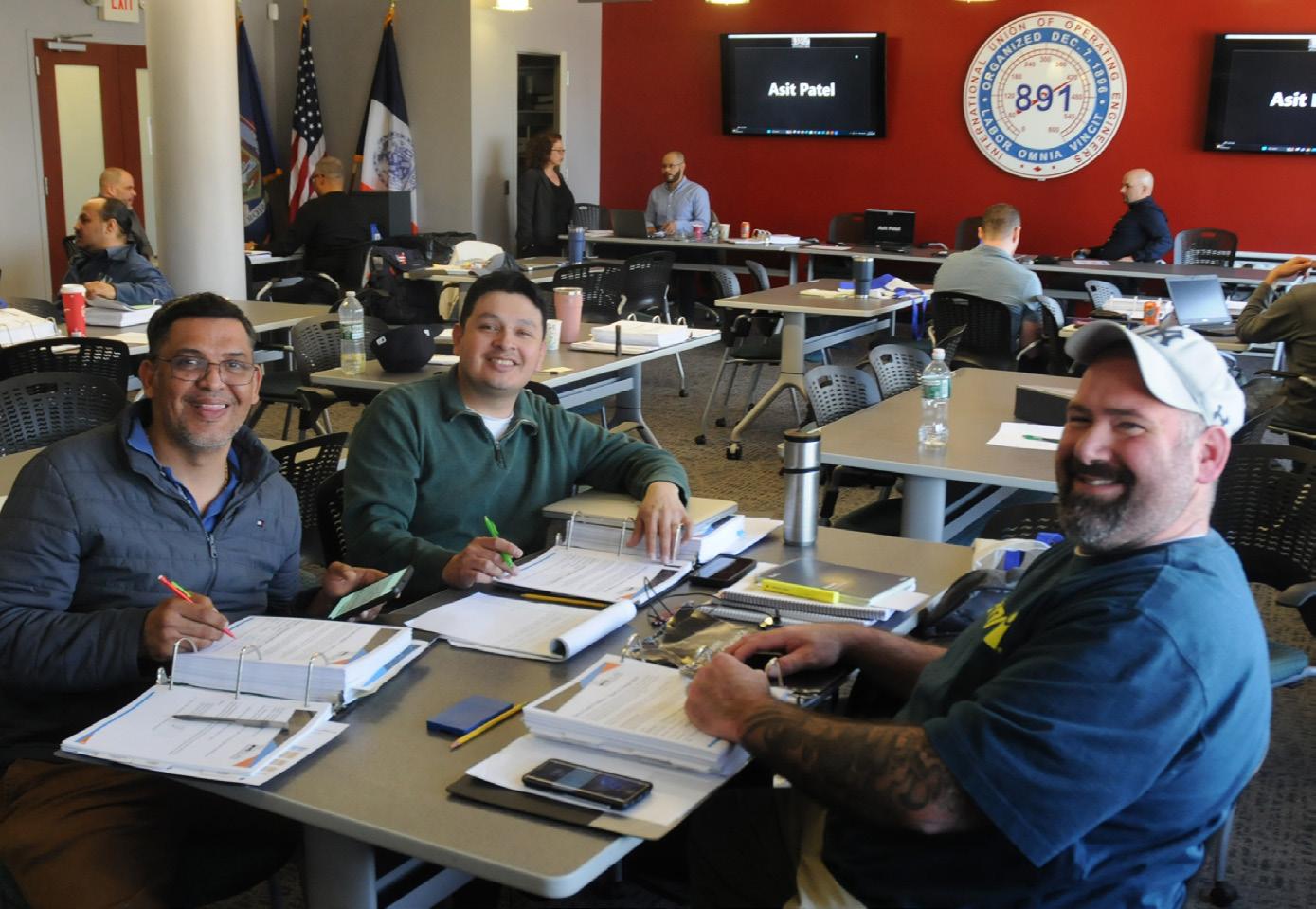
“New York City’s workforce has returned to fully in-person work, and learners are eager to get their training in-person as well.”
lessons learned and leveraging the best tools from remote learning.”
Morrison-Sadaka said bringing longer, full-day, intensive instruction courses in-person allowed students to better focus and get more tailored and personalized support from instructors. “We held short webinars to allow flexibility with learning. Our goal is to provide a variety of accessible offerings for our learners that allow for successful learning.”
Jeffrey Ramos, EMI learning and development specialist, said the return to in-person classes allowed for more meaningful engagement and collaboration in the classroom among the learners.
In LaMastra’s class, the final project focused on potential energy-saving measures in their buildings. His project recommended that the school replace all of their current lights with LED lighting and changing the steam traps. “I would definitely recommend this course,” he said. “It’s really beneficial for people in this field.”
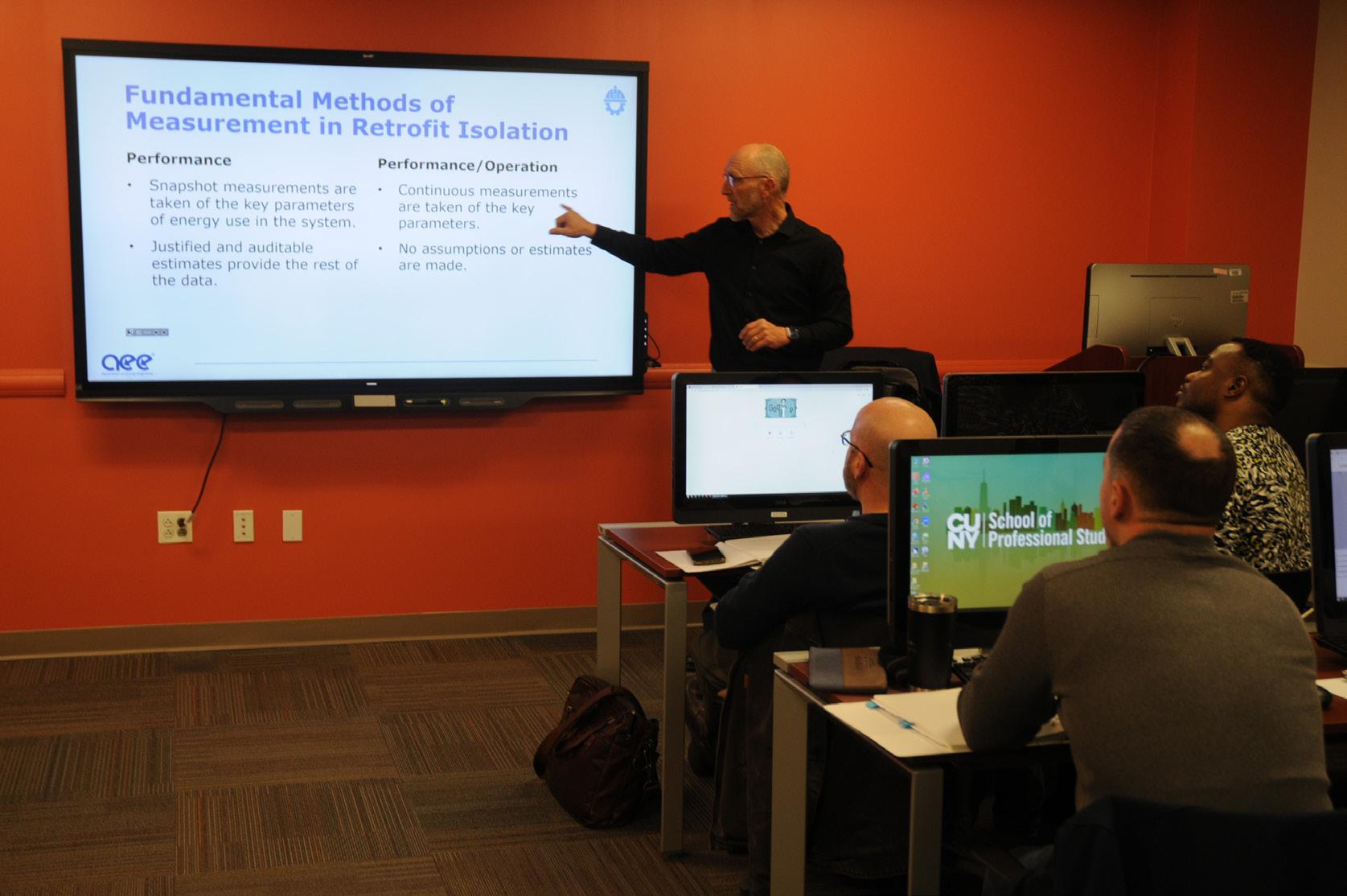
When Rachid Eladlouni, senior manager of program effectiveness for the Energy Management Institute, joined PEWL a year ago, one of his first tasks was to lead the team in securing a new learning management system. The process had already started, but Eladlouni picked up the project and kept it moving.
“I have a technology background and have worked with a lot of learning management systems,” Eladlouni said. “I noticed there was one piece missing and that was the student management part. No LMS does everything, but we needed one that also had a student information system.”
After researching many different systems, the team settled on Blackboard Learn Ultra and the system went live in October 2022.
“Our students were very pleased, especially the ones who had been with us and worked with the previous system,” Eladlouni said. “It just brought in a lot of possibilities that didn’t exist before from a course development and a learner experience. It’s also very visual and has a responsive design so a student can use this on a variety of platforms – their phone, a tablet, a desktop computer.”
Building professionals signed up for this class –the 3-day Certified Measurement Verification Professional Exam course – on the Energy Management Institute’s new learning management system.
EMI Program Director Michelle Attles added that after many years of using the Hughes LMS, it was great to receive the funding to upgrade, and critical to find a new system that could support the growth of the Energy Management Institute and expand the team’s capability to administer the program and deploy training.
“It was our good fortune that Rachid had prior experience supporting the implementation of an LMS in an educational setting,” Attles said. “His knowledge of functionality in systems like Blackboard was key to decision making from procurement through implementation.
Attles added that the aggressive timeline to go live within a six-week timeframe added pressure to learn system functionality. “Our entire team stepped up to the challenge and we collectively accomplished our goal,” she said. “Having Rachid fill in the knowledge gaps and take on several key tasks also played a significant role in our success.”
Training staff members on the implementation of a new system that registers and records parents receiving cash assistance benefits when applying for child support was a major undertaking by the Office of Child Support Services (OCSS)/CUNY Training Program in the past fiscal year.
Allyson Gasdaska, program manager for evaluation and quality assurance, noted that prior to the start of the pandemic, the system was paper-based. Caseworkers utilized a paper case file for each custodial parent or guardian applying for child support and conducted most client interviews in-person.
Once the pandemic began, caseworkers began conducting interviews over the phone. A basic, electronic tracking tool was hastily created as a stopgap measure. However, the need to move the casework to a robust, electronic tracking system became paramount, Gasdaska said. Accurately tracking and processing these cases is vitally important, as custodial parent benefits can be reduced if their cooperation with OCSS is not documented correctly.
In November 2022, a new virtual system, the Electronic Case Filing System (ECFS),
was rolled out by OCSS systems staff and programmers. The system tracks the progress of each case and allows OCSS caseworkers and court services personnel to seamlessly refer the cases through the steps of the process, with the goal of bringing the cases to Family Court to establish a child support order.
Moving from paper file folders to a completely electronic system for processing cases was a major change in workflow for OCSS staff. “ECFS collects application documents from multiple systems and stores them in each case file in an automated way,” Gasdaska said.
“The caseworker can review them in the system, record each contact that they make with a client, and track the final outcome of the case.”
Nearly 100 staff workers and supervisors have been trained in the ECFS system since it was launched. The training, which was developed and facilitated by CUNY Training Program curriculum developers, included an introduction and review of the system, as well as guided interactive practice with working real cases using the new application.
Staff reported high levels of satisfaction with the training sessions, which provided
their first experience logging into and viewing ECFS, guided their interactions, and answered their questions.
Program Director Anita Staeheli said that several members of her team of 20, comprised mainly of curriculum developers, trainers, technical procedure writers, and managers all contributed to ensuring that OCSS staff were ready to use ECFS.
Staeheli said the procedure writers did a massive job in documenting how the system would work in procedures and user guides. They were key in clarifying steps for navigating and processing cases in ECFS for easy comprehension by OCSS staff.
“This was an all-hands-on-deck effort and was a major rollout for the agency,” she said. “I think CUNY staff were absolutely key, both procedure writers and curriculum developers, in successfully launching this out to the agency.”
Additional features and functions will be added to ECFS over the coming years, and the members of the OCSS/ CUNY partnership will continue to take a lead role both in documenting these upgrades and in training staff on any changes to the system.

Natalie Rentas-Titus, director of social services at Day One NY, had hit a wall with her client, a 14-year-old survivor of sexual assault. This young person wanted to share their story but found it challenging to find the words in traditional, talk therapy sessions.
Looking for solutions, Rentas-Titus signed up for Connecting Through Art and Creative Expression, a five-week course at the Academy for Community Behavioral Health that helps providers use art to build trust, promote nonverbal self-expression, and strengthen connections with children and youth who have been impacted by violence.
Using tools from this course, Rentas-Titus and her client worked together on a project where they drew the part of the story that was hard for the young person to talk about.
These courses respond to priorities raised by providers in neighborhoods impacted by high rates of health and socioeconomic disparities, including the 33 neighborhoods identified by the New York City Taskforce on Racial Inclusion and Equity (TRIE) as most affected by COVID-19.
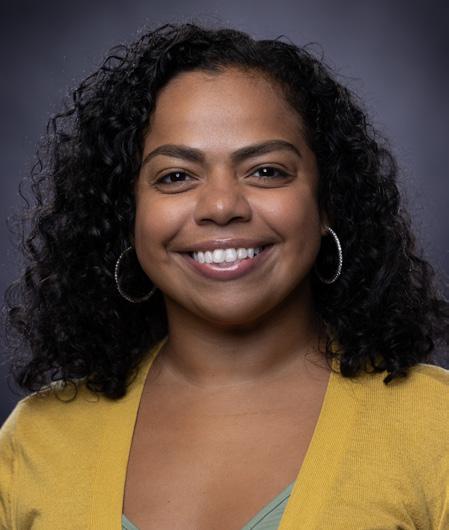
“I’ve been working with survivors for many years and recognized that even with years of experience providing counseling, there’s still so much to learn and there is so much power in bringing creative arts into our spaces,” RentasTitus said. “The instructors’ advice about how to engage and maintain the flow of conversation after the art was created was extremely helpful.”
Connecting Through Art and Creative Expression is one of the unique, multi-session courses offered by the Academy in FY23. It reflects the Academy’s mission to share behavioral health knowledge and skills with city social service providers who already have meaningful relationships in their communities and can provide help.
The Academy launched in June 2021 with funding and support from the Mayor’s Office of Community Mental Health (OCMH) and the Mayor’s Office for Economic Opportunity (NYC Opportunity). Since its launch, the Academy has reached more than 6,000 learners through its free courses, including 3,286 learners in FY23, surpassing its two-year target of serving 5,000 learners.
Multi-session courses and skills-based certificate programs at the Academy offer experiential learning, skills practice, coaching, implementation support, and peer networks. Over the past year, the Academy offered comprehensive courses on topics that include healing intergenerational trauma, providing bereavement support, motivational interviewing, and trauma-informed practice.
In FY23, the Academy expanded its co-design work and participatory research to advance communitycentered care, and also:
• Secured more than $250,000 in new funds to create or expand programs that prioritize co-design work.
• Developed a new Trauma-Informed Organizational Practice certificate program with input from staff, supervisors, and leaders at more than 20 communitybased organizations and city agencies.
• Created a Trauma-Informed Organizational Practice advisory committee of city social service providers to continue improving and adapting the curriculum.
• Collaborated with CUNY SPS Youth Studies program to launch Working the Gap, a program to provide applied skills training, paid work experience, and other support to young people who have completed high school or received their GED and are not currently enrolled in college. As part of Working the Gap, the Academy is developing a Youth Mental Health Advocate training program that will be shaped by New York City youth and youth-serving organizations.
• Provided support to the Land-Based Healing Project, an ongoing community-based research project led by Dr. Anna Ortega-Williams, assistant professor at Hunter Silberman School of Social Work. This project uses oral histories to investigate the role community farms and gardens can play in helping Black youth and youth of color heal from historical trauma and persistent racism.
“These co-design activities strengthen our ability to match relevant behavioral health tools to the everyday work social service providers do, move promising approaches into practice, and increase the understanding and capabilities that already exist in the city’s diverse and vibrant communities,” said Academy Program Director Elise Tosatti. “We look forward to expanding programs that celebrate the potential for healing and care in the coming year.”
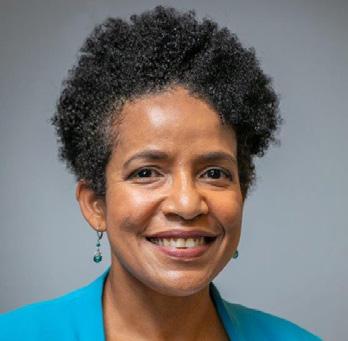
“PEWL and their partners have closely worked with our agency to develop the virtual financial coaching training program, Financial Independence Now (FIN). This program equips DHS shelter staff with tools to better support our clients in their successful transition to permanent housing and financial independence. We are grateful for this long-standing partnership and look forward to building on the progress we’ve made with the FIN program as we continue to raise the bar on the services and supports for our clients. ”
— Beatriz Fritschler, Deputy Commissioner of Strategic Partnership, Department of Social Services“The Academy remains committed to advancing an anti-poverty and equity agenda, and to integrating the knowledge and expertise of community members, service providers, city and state agencies, and other stakeholders through co-design activities that actively shape program design and delivery.”
— Carson C. Hicks, PhD, Acting Executive Director, Mayor’s Office for Economic Opportunity
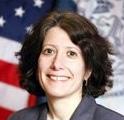
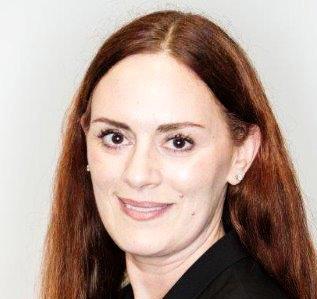
“OCSS has benefited greatly from the partnership we have had in place with CUNY over the past 16 years. Procedures and training are necessary to any large complex organization. They help ensure compliance with federal, state, and local laws and regulations and allow an organization to give staff the tools they need to effectively carry out their responsibilities. I am proud to say that with this partnership OCSS has been able to put in place procedures throughout OCSS where none existed in most areas and conduct numerous trainings.”
— Frances Pardus-abbadessa, Executive Deputy Commissioner, Office of Child Support Services
“The relationship between the DSS Office of Training & Workforce Development and the CUNY SPS PEWL team is a blueprint for successful strategic partnerships. Their collaborative approach is vital to ensuring that our agency meets its learning and development goals.”
— Terrance Stroud, Deputy Commissioner, Training & Workforce Development, Office of Policy, Procedures and Training, Department of Social Services
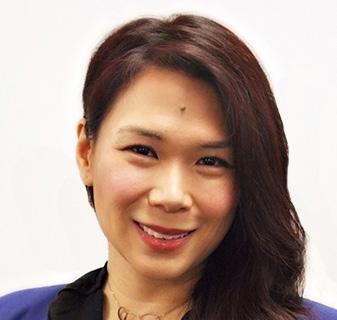
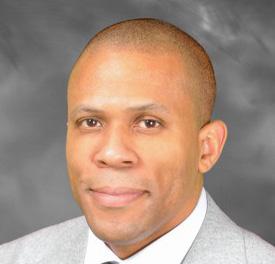
“We cannot care for the health and well-being of our brothers and sisters in New York City without supporting self-determination and building capacities within communities, and in community-based organizations. The Academy does exactly that and more by making practice-informed tools available and accessible. The Academy is an invaluable vehicle for realizing the City’s dream of rebuilding a healthy and equitable infrastructure, and strengthening community networks that address the social determinants of health needs of those most impacted by inequities. This way, people can get the compassionate behavioral health support they need where they are and from those they trust. With its commitment to elevating the unique wisdom and healing practices of our diverse communities, connecting research to practice, and treating the community as equal partners in the curriculum design process—the Academy is an embodiment of the trauma-informed practices that it teaches. The Academy has become an integral part of the efforts to transform the landscape of NYC’s behavioral health services, practices, standards, and networks.”
— Eva Wong, Executive Director, Mayor’s Office of Community Mental Health
The Anti-Bias Trauma-Informed Training Initiative has been nationally recognized for its innovative work.
The NYC Department of Social Services (DSS) Office of Training and Workforce Development received the Quality Agency Award for exceptional leadership and educational contributions to the field of health and human services. Presented by the American Public Human Services Association during the National Staff Development and Training Association Annual Education Conference in October 2022, the award acknowledges the ABTI program and its important efforts to support city workers.
The ABTI program provides the DSS staff, the Human Resources Administration (HRA), and the Department of Homeless Services (DHS) with training to help recognize how individual and structural bias and trauma influence behavior and decision-making in the workplace. These three agencies employ 17,000 staff members, all of whom will receive this training.
The ABTI team, led by PEWL Program Director Dorothea NixonPorter, helps staff to understand automatic patterns of thinking, become aware of how unconscious bias can manifest itself in their work interactions, and mitigate bias. The team conducts this one-day training using an asynchronous e-learning program, combined with in-person and virtual instructor-led training courses consisting of lecture, small group exercises, case studies, and large group discussions.
DSS Deputy Commissioner of Training and Workforce Development Terrance Stroud, who received the award during the conference, said, “The coordinated effort between my office and PEWL allowed the agency to focus on equity and provide mandated, agency-wide anti-bias training, out of which the ABTI initiative was born.”
With violent and super storms becoming more frequent, the need for New Yorkers to be prepared is more important than ever.
The Coastal Storm Plan (CSP) program trains New York City agency staff for these weather emergencies. In partnership with the agency NYC Emergency Management, the CSP program offers an example of how PEWL works closely with the city to support its residents. First developed by PEWL in 2005, the CSP program includes a variety of instructor-led online trainings, e-learnings, and marketing

videos, as well as field guides, pocket reference guides, Just-inTime training manuals, and other operational materials to be used in hurricane shelters and evacuation centers.
Since its inception, tens of thousands of city employees have taken the training, which is targeted primarily towards city agency staff who are assigned a role in the CSP evacuation and sheltering system and require training to run these and other emergency operations. The CSP program is also available to state, federal, NGO, and private partner organizations that provide support for these operations.
PEWL and the New York City Department of Correction (DOC) Academy successfully built and implemented a leadership training program, called LEAD, for mid-level managers. Two cohorts of 15 people completed courses aimed at strengthening communication skills, conflict resolution, time management, delegation, managerial decision making, data analytics, and other critical competencies.
In FY23, a class of 19 DOC employees successfully completed the EMT certification and became eligible to take the New York State Department of Health exam.
In an effort to build capacity inside the organization, 16 DOC staff members completed DiSC® Certification, which equipped them with the skills needed to facilitate DiSC® trainings. This in-depth training on the “behavioral model of human behavior,” will empower DOC employees to utilize behavioral assessments in their working professional environment.
Other notable projects in FY23 include a three-day, inperson, adult mental health first aid course, a Scan and Image Management Train-the-Trainer course, and leadership trainings with emphasis on emotional intelligence, self-reflection, and creating a culture of trust.
The Department of Homeless Service Staff Learning and Development Program’s embedded team redesigned the Right to Know/Workplace Violence Prevention training from an inperson program by a vendor to an online e-learning instruction available anytime.
The new course, which eliminated vendor cost and efficiently used partner resources, is now part of the agency’s learning management system, Absorb. Nearly 7,000 staff were able to complete this training in two weeks.
In addition, this team delivered two courses in support of a three-day DHS training initiative: The Universal Approach to Client Engagement: Five Steps to Home E-learning, which focuses on client eligibility, and The Apartment Review Checklist (ARC) blended learning, which provides learners guidance for ensuring housing is safe and habitable for clients. It also includes a simulation so learners can practice completing an apartment review checklist on their own.
More than 600 staff members took these courses to help increase housing placements. Since ARC’s typical class size is 25 participants, the team was able to accommodate the larger volume of participants by creating alternative approaches for learner engagement and evaluating comprehension and course assessment. As a result, the team successfully delivered the 4.5-hour training and also provided support with registration, attendance tracking, and reporting.
Also, with the influx of asylum seekers to New York City, the team moved rapidly to provide National Guard and Temp Staff access to shelter operations and models of practice foundational e-learning to build their skills in creating emergency shelters. There were nearly 5,500 total training completions across the identified courses.
Lastly, the team also co-facilitated 12 Transfer Process virtual instructor-led trainings to more than 500 DHS and provider staff to

meet a Local Law need; developed 15 courses in which DHS and HRA staff completed almost 60,000 training hours; and launched a program management unit focusing on learning gains and creating an evaluation process.
PEWL coordinates the training for the Family Development Credential (FDC) program, in partnership with the NYC Department of Youth and Community Development (DYCD), provided to frontline workers and supervisors in the public, private, and non-profit health and human services sectors.
The training’s emphasis is on empowerment and family support. The credential, issued by the Center for Culture, Health, and Human Development at the University of Connecticut, is earned after intensive coursework, an exam, and the submission of a portfolio.
The course is typically held in the fall and spring. Dr. Sonia Mercado, PEWL’s FDC instructor, has been teaching the course at CUNY SPS for the past five years.
“The FDC program makes us look at things differently,” explained Dr. Mercado. “We want to hear from the families. We want to hear about their strengths and turn around their mindset. We show families how to look at their strengths and what is going well for them.”
Dr. Mercado added that services have often been available only when a family is in crisis or about to disintegrate. She said interventions have focused on fixing or rescuing families, rather than helping families develop their capacity to solve problems and achieve self-reliance.
The FDC program reorients the way social services are delivered toward a more family-focused and strengths-based approach. It also ensures that front-line health and human services workers are using the same approach to help families.
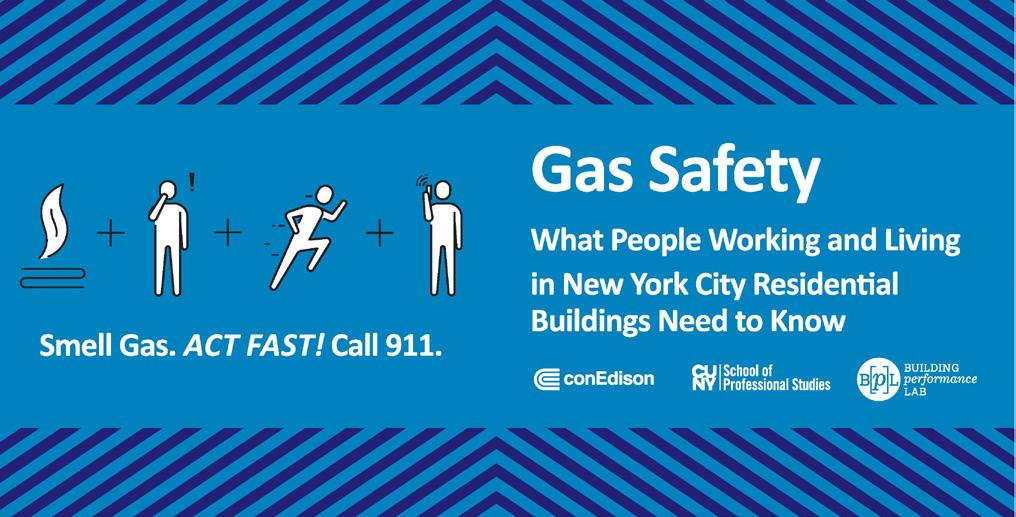
PEWL, together with the CUNY Building Performance Lab (BPL), partner with Con Edison to design, develop, and deliver a gas safety training program to New York City building superintendents and property management firms.More than 600 people have been trained since the program’s inception, which provides free classes to building owners, operators, and maintenance staff.
The entirely online training consists of two courses. The Superintendent’s course is a three-hour, instructor-led class, while the Owner-Manager course is a combination of three e- learning modules and a 2.5-hour instructor-led class.
The e-Learning modules teach participants how to detect gas leaks and what to do if someone smells an odor of gas; manage, maintain, and repair building gas systems; secure required qualifications/ certifications; identify pertinent equipment to address problems; hire properly certified contractors; and secure all necessary permits and approvals and obtain approval.
The PEWL and BPL teams developed, created, and published a gas safety, resource kit brochure that details the hazards of natural gas and how to prepare for, recognize, and respond to possible gas safety incidents. The colorful brochure was distributed to the class participants’ property management companies.
In addition, earlier this year, PEWL conducted a comprehensive evaluation to assess the training’s outcomes. Reaction surveys collected immediately following each training session indicate that the training participants were extremely satisfied with their experiences, with all survey questions averaging scores above 4.8 out of 5.0.
Angela Barraco-Levine, program manager for curriculum development and special projects, at the Office of Child Support Services (OCSS) CUNY Training Program, received a special shoutout from OCSS Executive Deputy Commissioner Frances Pardusabbadessa for her work on the Office Hours project. Barraco-Levine and her team recently offered office hours for local employers needing help with their part in the child support process.
The event allowed employers to get immediate answers to their questions. Pardus-abbadessa shared the praise in a department email and said she was happy that they reached small to mid-size employers and discussed important topics such as reporting when employees join and leave their companies and remitting timely payments.
PEWL celebrated the launch of Unlocking Employment: How to Partner with Job Seekers Impacted by the Legal System, an e-learning course developed with the Mayor’s Office for Economic Opportunity (NYC Opportunity) and the John Jay College Institute for Justice and Opportunity.
Designed in partnership with job seekers and workforce specialists, this free, 90-minute, online training includes four self-paced modules featuring interactive exercises and case studies, and a curated resource library that learners may refer to at any time during or after the course.
Registration is free and open to front-line staff and program leadership at NYC workforce development programs.
“We are thrilled that this program is up, running, and available to workforce development professionals working every day to help people with lived experience in the criminal legal system gain employment,” said PEWL Senior Program Director Dawn Picken. “The course is filled with key insights on legal protections for those with criminal convictions, ways to reduce stigma and discrimination, and proven strategies to support the job search.”

Creating accessible Mandated Reporter training for a wider audience was important to Office of Children and Family Services, its stakeholders, as well as Stacy Robison, PEWL e-learning instructional design manager at OCFS e-learning program, and her team.
Robison said they were successful in producing the online training that allows trainees to absorb the materials in a variety of ways so that the net is widened for many different types of learners. OCFS offers this online training for free in child abuse and neglect/ maltreatment identification. The training is also available in Spanish.
This web-based training is narrated, comprehensive, and includes interactive learning exercises which allow participants to test their knowledge using case examples. It includes full captions, as well as keyboard navigation and alternate text options for learners who rely on assistive technology. A certificate of attendance is sent to those who complete the course.
“The goal with a training like this is to provide a rich, interactive experience for all learners,” Robison said. She added that she
and her team keep certain questions in mind when they are implementing their design work, such as: Who are your learners? What conditions or situations may impact their learning or participation in the training? Have we been able to address the accessibility needs of your learners?
“I always want to caption everything, because I use captions a lot myself,” she said. “But the conventional wisdom in instructional design is that having both text and audio of the same material can diminish trainees’ retention of the material.”
This might be the case for neurotypical learners, but Robison said someone with ADHD, autism, or other neuro-divergent brain styles need more options. “It means that you don’t have to pick one thing for everybody,” she said. “You give the learners the ability to choose for themselves. We’re building training for superheroes—the people who go out and do the work in our communities—so it’s important to accommodate as many learning styles as we can.”
What do you get when you partner with CUNY SPS PEWL?
EXPERTS IN:
Change management
Curriculum design
E-learning module design
Facilitation and learner engagement
Identification and sourcing of talent
Learning management systems
Learner recruitment and registration
Marketing
Needs assessment and analysis
On-the-job training
Organizational development
Process re-engineering
Professional skills development for workers
Professional training program evaluation
Program expansion
Program management
Simulation training
Specialized learning program design
Training operations
Vendor management
Dorothea Nixon-Porter Program Director
Partner: NYC Department of Social Services (DSS)
Inception: 2019
The Anti-Bias Trauma-Informed Training (ABTI) program provides training for the Department of Social Services (DSS), Human Resources Administration (HRA), and the Department of Homeless Services (DHS). The trainings focus on the intersections of individual and structural biases, racism, and trauma, and their influence on behavior and decision-making in the workplace. The ABTI team helps staff to understand automatic patterns of thinking and mitigate bias. The training is conducted using in-person and asynchronous e-learning modalities as well as virtual instructor-led modules consisting of lecture, small group exercises, case studies, and large group discussions. Core services:
• E-learning module design
• Facilitation and learner engagement
• Identification and sourcing of talent
• Organizational development
• Program evaluation
• Specialized learning program design
• Training operations

Charlene Armstrong Program Director
Partner: NYC Administration for Children’s Services (ACS)
Inception: 2015
The Workforce Institute, a partnership between the Administration for Children’s Services, PEWL, and the Hunter College Silberman School of Social Work, provides ongoing, professional skills development for direct service staff and supervisors at ACS and its many partner agencies. Programs include strengths-based practice, coaching, safety and risk assessment, implicit bias, evidencebased modeling, and other specialized coursework delivered to numerous staff members across the child welfare and juvenile justice sectors. Core services:
• Change management
• E-learning module design
• Facilitation and learner engagement
• Identification and sourcing of talent
• Learning management systems
• Learner recruitment and registration
• Marketing
• Needs assessment
• Organizational development
• Professional skills development
• Program expansion
• Project management
• Specialized learning program design
• Training operations
• Vendor management

Michael Schultz
Senior Program Manager
Partners: NYC Department of Citywide Administrative Services (DCAS) and NYC Emergency
Inception: 2010
The CSP training program is targeted primarily towards City agency staff who are assigned a role in the CSP evacuation and sheltering system and require training to perform necessary tasks. The program is also available to state, federal, NGO, and private partner organizations that provide support for these operations. Core services:
• Learning management systems
• Professional training
• Program management


Viktoriia Chubirka
Senior Program Manager
Partner:
NYC Department of Correction
Inception: 2017
This partnership supports the agency’s mission through the development of learning programs for uniform and nonuniform staff. Our work with the agency includes instructor-led training (ILT) leadership courses, e-learning modules, on-the-job training (OJT) scenarios, and other programs and workshops.
Core services:
• Needs assessment
• On-the-job training
• Program evaluation
• Vendor management
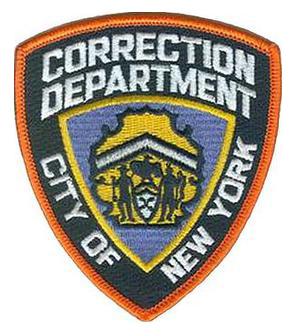
Tisa Joyner-Nance Program Director
Partner: NYC Department of Social Services (DSS) Office of Policy, Procedures and Training (OPPT)
Inception: 2019
The DSS DHS Staff Learning and Development Program’s embedded team writes comprehensive procedures and designs and deploys training to DHS and DHS provider staff on operational processes and City-mandated topics, focusing on how to operate and maintain DHS-funded facilities and programs.
Core services:
• Assessment
• Curriculum design
• Facilitation and learner engagement
• Identification and sourcing of talent
• E-learning modules and simulations
• Learning management systems
• Marketing
• Organizational development
• Process re-engineering
• Program management
• Project management
• Specialized learning program design

Michelle Attles Program Director
Partner: NYC Department of Citywide Administrative Services (DCAS) Division of Energy Management (DEM)
Inception: 2009
The EMI trains New York City staff in energy management best practices and helps them develop the skills they need to optimize building performance. EMI offers a broad range of trainings, certifications, and other technical support to City staff from diverse disciplines, including energy managers, energy auditors, building operators, engineers, and tradespeople. The courses and workshops focus on improving the skills of DCAS-DEM supported agency employees responsible for implementing energyefficient measures that support the City’s major, greenhouse gas, emission reduction goals. EMI helps empower City staff to make energy-smart decisions, implement operational improvements, and advocate for energy retrofits and clean energy projects across the City’s portfolio. Core services:
• E-learning module design
• Facilitation and learner engagement
• Identification and sourcing of talent
• Learning management systems
• Organizational development
• Professional skills development
• Professional training
• Program evaluation
• Program management
• Specialized learning program design
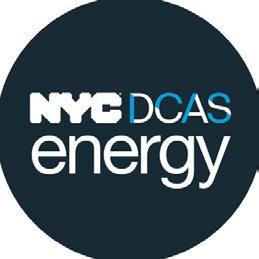
continued
Mercedes Figueroa
Program Manager
Partner: NYC Department of Youth and Community Development (DYCD)
Inception: 2011
PEWL coordinates the professional development FDC training in partnership with DYCD. FDC is an interactive, professional development training for front-line workers and supervisors from public, private, and nonprofit health and human services systems, with an emphasis on empowerment and family support, to reorient the way services are delivered. The credential, issued by the Center for Culture, Health & Human Development at the University of Connecticut, is earned after completion of interactive classroom study facilitated by a certified instructor, completion of an examination, and the development of a portfolio. Core services:
• Facilitation and learner engagement
• Program management
• Professional skills development

Jennifer DePalma
Program Director
Partner: NYC Department of Homeless Services (DHS)
Inception: 2018
DHS FIN provides financial coaching strategies and tools to shelter-based staff, including case managers, independent living specialists, housing specialists, and leadership, to help shelter clients set financial goals, develop monthly spending and savings plans, check credit scores and reports, and ultimately transition to permanent housing. The program also aims to increase client access to New York City Financial Empowerment Centers, which provide more in-depth financial counseling services, via a referral process. Core services:
• E-learning module design
• Facilitation and learner engagement
• On-the-job training
• Program evaluation
• Program expansion
• Program management
• Training operations
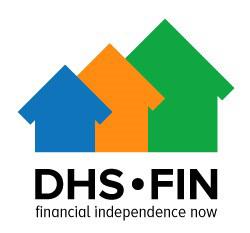
Michelle Attles Program Director
Partners: Con Edison and CUNY Building Performance Lab
Inception: 2018
This program offers free gas safety training classes for building owners, managers, superintendents, operators, and maintenance staff of all New York City residential buildings. The entirely online training consists of two courses. The Superintendent’s course is a threehour instructor-led class, while the Owner-Manager course is a combination of three e-learning modules and a 2.5hour instructor-led class. Core services:
• E-learning modules
• Needs assessment
• On-the-job training
• Program management
• Program evaluation
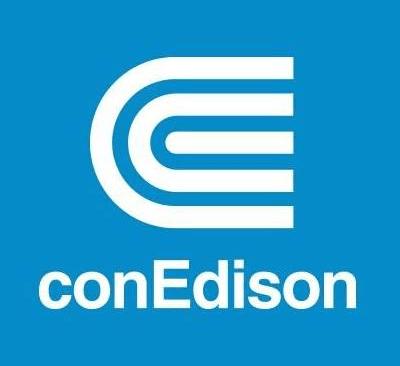
Clarke Griffith Program Director
Partner: The Mayor’s Office for Economic Opportunity (NYC Opportunity)
Inception: 2011
Managing for Innovation is a leadership program consisting of the Program Managers’ Forum, the City Partners’ Workshop, and an alumni network. The Program Managers’ Forum, the signature course, is designed for program directors, assistant directors, and other emerging leaders at New York City nonprofits who manage or work on city-funded human services programs. The City Partners’ Workshop is for city agency and Mayor’s Office staff who help to oversee the design, implementation, and monitoring of city-funded human services programming and systems change initiatives. Core services:
• Curriculum design
• Facilitation and learner engagement
• Identification and sourcing of talent
• Marketing
• Needs assessment and analysis
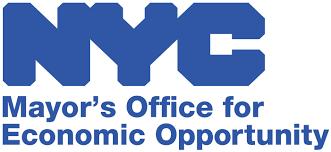
Anita Staeheli
Program Director
Partner: NYC Human Resources Administration Office of Child Support Services (OCSS)
Inception: 2008
In support of employee learning and performance support goals, this workforce development program develops new training courses and procedures. The program maintains and delivers an ongoing training calendar, including a rotation of existing courses. PEWL supports OCSS in their mission to lift New York City children out of poverty each year. Core services:
• Change management
• E-learning module design
• Facilitation and learner engagement
• Identification and sourcing of talent
• Learner recruitment and registration
• Learning management systems
• Needs assessment
• Organizational development
• Process re-engineering
• Program evaluation
• Program management
• Specialized learning program design
• Training operations

Elise Tosatti Program Director
Partners: The Mayor’s Office of Community Mental Health (OCMH) and the Mayor’s Office for Economic Opportunity (NYC Opportunity)
Inception: 2021
The Academy builds the capacity of community-based organizations, city and state agencies, and other social service providers to address behavioral health. The Academy provides free courses for New York City nonprofit, social service providers, pilots new community-centered care approaches, and offers custom services for city and state agencies. Capacity-building is prioritized in the 33 neighborhoods identified by the New York City Taskforce on Racial Inclusion and Equity (TRIE) as most impacted by COVID-19 or experiencing high rates of health and other socioeconomic disparities. Core services:
• Curriculum design
• Facilitation and learner engagement
• Identification and sourcing of talent
• Learning management systems
• Marketing
• Needs assessment
• Professional skills development
• Program evaluation
• Program expansion
• Program management
• Specialized learning program design
• Training operations


15 PEWL PROGRAMS continued
13 14 15
Jennifer DePalma Program Director
Partner: New York State Office of Children and Family Services (OCFS)
Inception: 2010
PEWL provides OCFS state, local district, and provider agency staff statewide with mandated training on topics designed to promote health and safety among children and adults. The primary training audience includes child welfare and adult protective caseworkers, and supervisors, juvenile justice staff, and foster/adoptive parents. The team also supports all in-person and remote training technology used by OCFS learners. Core services:
• E-learning module design
• Facilitation and learner engagement
• Learning management systems
• Professional skills development
• Program management
• Specialized learning program design
• Training operations

EMPLOYMENT: HOW TO PARTNER WITH JOB SEEKERS IMPACTED BY THE LEGAL SYSTEM
Clarke Griffith Program Director
Partner: The Mayor’s Office for Economic Opportunity (NYC Opportunity)
Inception: 2018
Unlocking Employment is a 90-minute, self-paced, e-learning course that provides best practices and resources to professionals working with job seekers who have legal system involvement. Emphasizing a strengths-based approach, the course content was developed in partnership with the John Jay College Institute for Justice and Opportunity, workforce development provider staff, and job seekers with experience in the legal system. Core services:
• Learning management systems
• Needs assessment
• Professional skills development
• Project management
• Vendor management

Clarke Griffith Program Director
Partner: Central Park Conservancy Institute for Urban Parks
Program Ended June 30, 2023
The Urban Park Leadership Program is a non-credit credential that brings together executive and senior-level, urban park professionals from across the country and internationally for a nine-month professional development experience of synchronous and asynchronous learning, network building, and creative problemsolving relevant to urban park leadership and management.
The Essentials of Urban Park Management Certificate offers a fully online, self-paced, 14-week, non-credit credential for entry- to mid-level staff in public park agencies and nonprofit urban parks groups nationally and internationally, focusing on practices critical to the care and management of urban parks. Core services:
• Facilitation and learner engagement
• Learner recruitment and registration
• Learning management systems
• Marketing
• Professional skills development
• Program evaluation
• Program management
• Specialized learning program design

• Pilot a Youth Mental Health Advocate Program that will train and place 25 youth advocates for part-time work in community-based organizations between September 2023 and June 2024.
• Use co-design to develop a plan for extending behavioral health skills to more social service providers and strengthening community care pathways across New York City.
• Pilot and expand the use of the Coastal Storm Plan Learning Management System and virtual instructorled Training enrollment and notification.
• Design and deploy DHS’ Rehousing Support Curriculum. This e-learning program will include courses on How to Create a Housing Packet for all subsidies, micro-learnings for all forms, the revised Universal Approach to Client Excellence: Five Steps to Home Eligibility Training, and an Apartment Clearance course.
• Promote housing packet completion consistency and help reduce errors across DSS’ HRA, Community Based Organizations, and DHS provider staff by designing and piloting the DSS CityFHEPS Boot Camp. This one-day, in-person training will include determining eligibility, correctly completing a CityFHEPS Housing Packet, and submitting it to CurRent, the landlord management system.
• Operationalize the newly implemented learning management system. Hire a new LMS administrator and leverage the system’s powerful data tools for strategic decision-making and outreach.
• Focus on opportunities for curriculum enhancements that make EMI-delivered education more impactful and relevant.
• Implement the Kirkpatrick Level 3 evaluation strategy to ensure that curriculum effectively translates learning into real-world, on-the-job performance.
• Expand capacity to have all City Partners’ Workshop sessions in-person at CUNY SPS.
• Offer an alumni network professional development session on one of the Managing for Innovation competencies.
• Modify the DHS FIN training format to include an instructional navigation video of the e-learning platform, as well as a new, live session focused on the review and implementation of key concepts and tools from the e-learning modules, for use in DHS shelters for learners.
• Promote the free Unlocking Employment e-learning course to new audiences through targeted outreach to grow awareness and participation.
• Activate auto-enrollment to simplify the process and increase the number of participants who complete the course.
 PEWL Office of Professional Education and Workplace Learning
PEWL Office of Professional Education and Workplace Learning